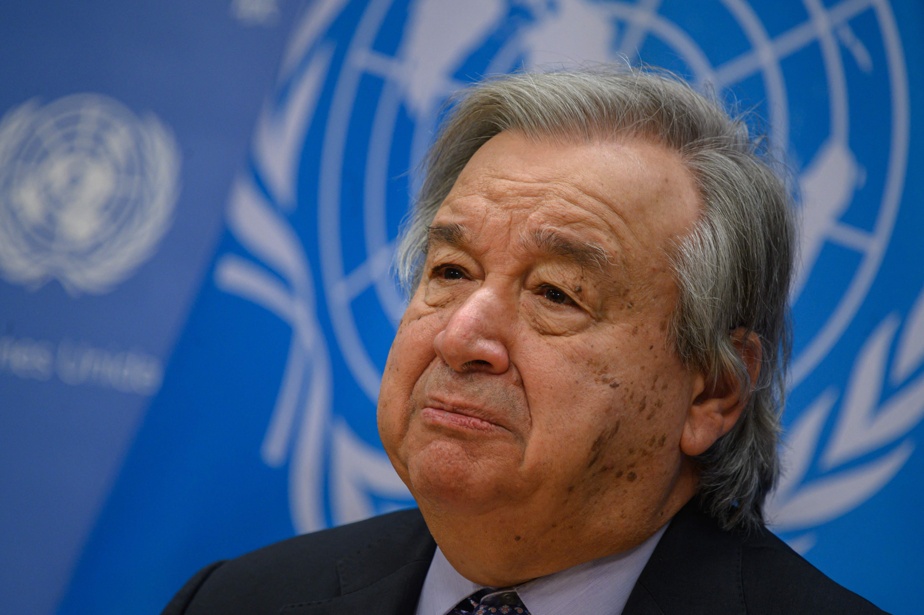(United Nations) United Nations Secretary-General António Guterres on Tuesday called on the Taliban regime in Afghanistan to abolish the employment and education ban it imposed on women, calling them “unjustified violations of human rights”.
Prior to Mr. Guterres, High Commissioner for Human Rights Volker Türk had urged the Taliban to lift these “unimaginable restrictions” and warned of “dire consequences” for “all Afghan people”. The 15 members of the Security Council at the United Nations headquarters in New York declared that they were “deeply concerned” by Kabul’s decision to suspend women’s entry to universities and prevent them from working in non-governmental organizations.

PHOTO ED JONES, Agence France-Presse Archives
United Nations Secretary-General António Guterres
“The Taliban’s recent restrictions on the employment and education of women and girls are unjustified violations of human rights and must be reversed,” the UN chief wrote on Twitter.
“Actions aimed at excluding and silencing women and girls continue to cause enormous suffering and set back the potential of the Afghan population,” Mr. Guterres stressed.
Mr. Türk had previously insisted in a press release from Geneva: “No country can develop – or even survive – socially and economically if half its population is excluded.”
The Taliban, who seized power in Kabul in August 2021 and whose authority is not recognized by most of the international community, banned women and girls after a few days from pursuing university studies and working for national or international NGOs.
Many NGOs depend on their female staff and would not be able to operate without them.
On Monday, half a dozen non-governmental organizations suspended their activities there, and the Taliban threatened to revoke the permits of organizations that did not honor the decree.
“A ban will significantly undermine, if not destroy, the ability of these NGOs to provide the essential services on which so many vulnerable Afghans depend,” the UN human rights chief predicts. More than half of the population – about 24 million people – depend in one way or another on humanitarian aid.
For its part, the Security Council called for the reopening of schools and universities to women, and ruled that the ban on their work in NGOs “will have a significant and immediate impact on humanitarian operations in the country, including those of the United Nations.”
Despite their promises to be more flexible, the Taliban returned to a very strict interpretation of Islam that marked their first transition to power (1996-2001).
Since their return to power, liberty killing measures have multiplied, particularly against women who have been gradually excluded from public life and excluded from colleges and secondary schools.

“Total coffee aficionado. Travel buff. Music ninja. Bacon nerd. Beeraholic.”








